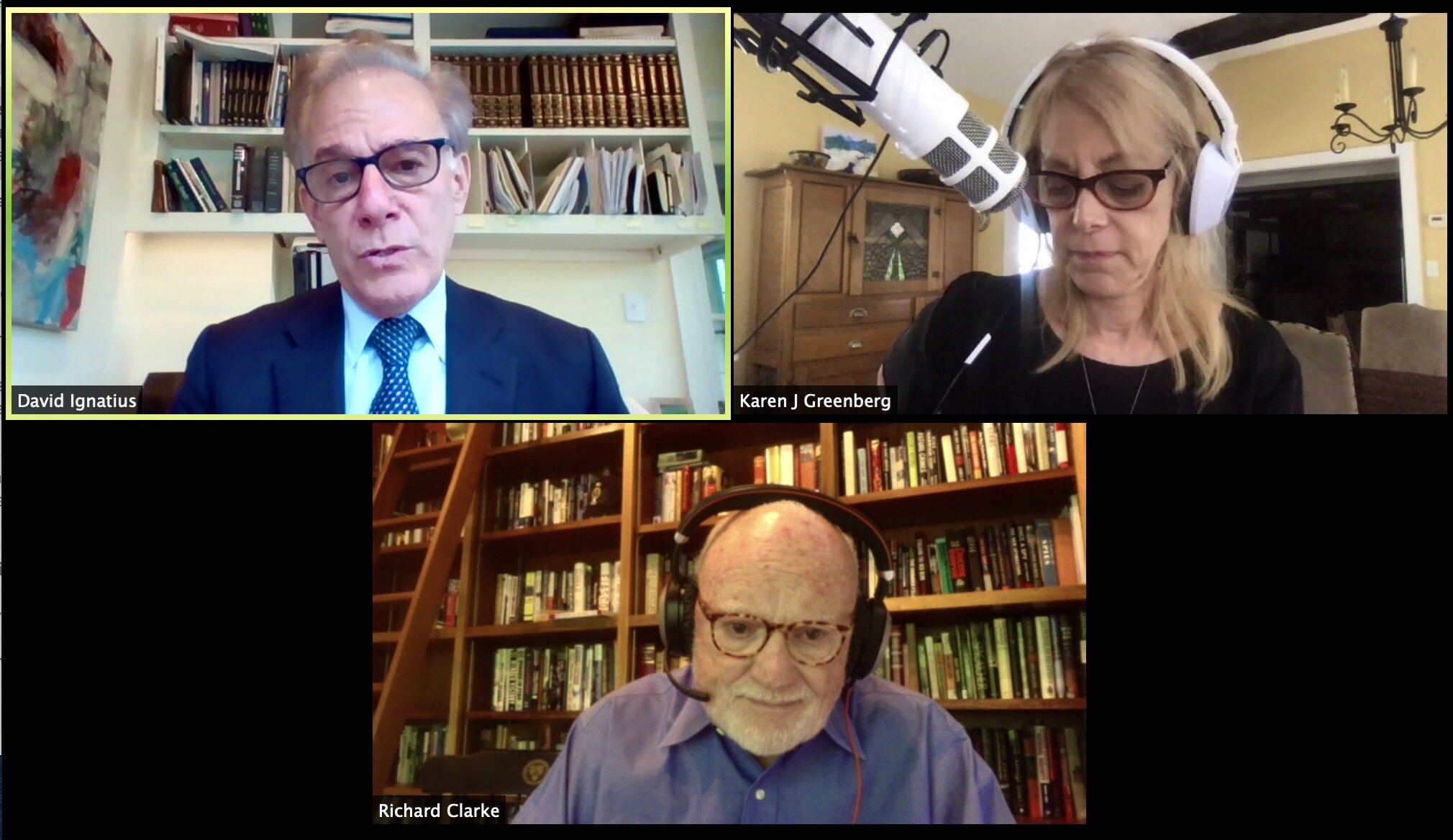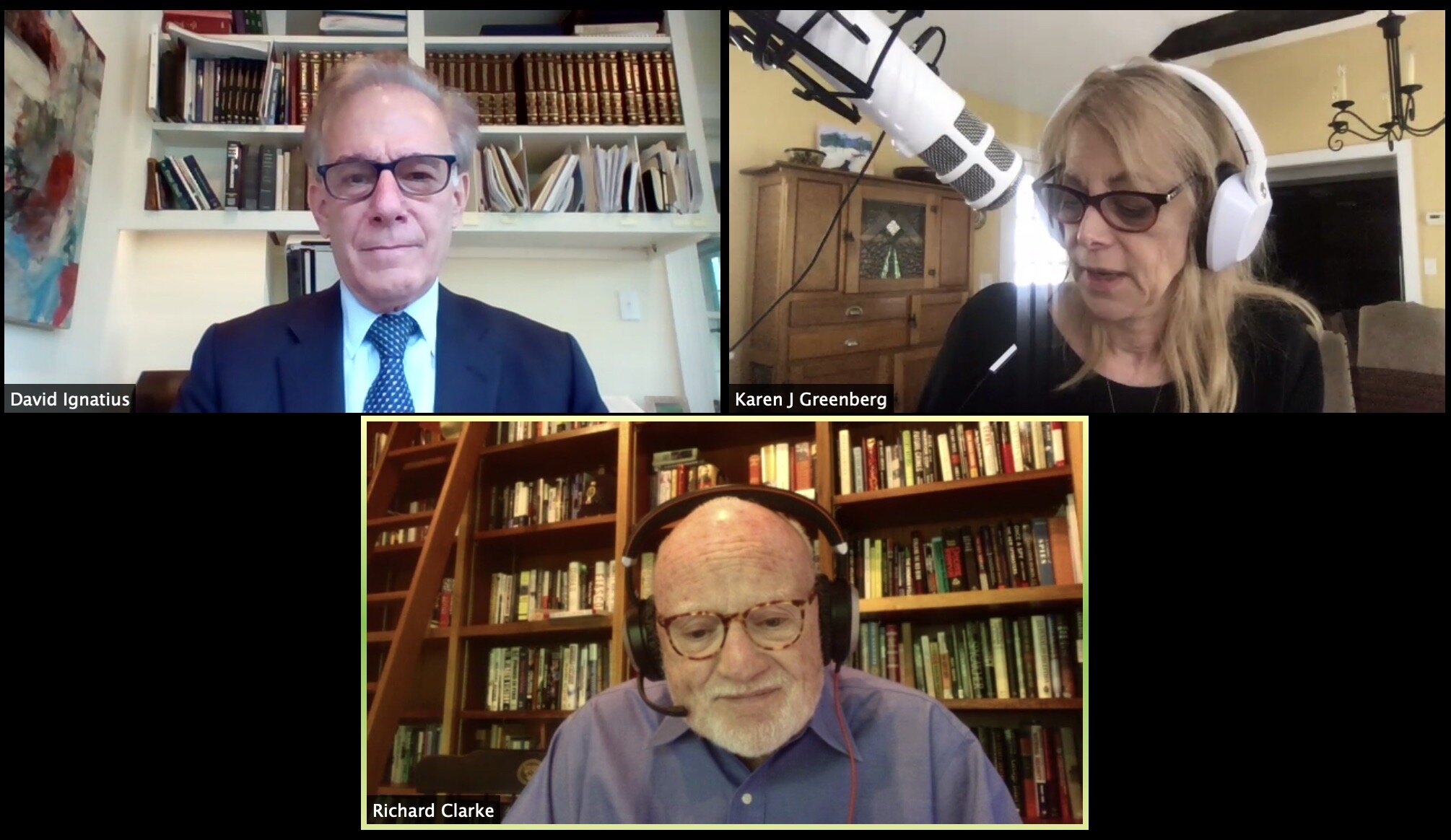The Center on National Security at Fordham Law Presents a Webinar Discussion of
The Paladin: A Spy Novel
With author
David Ignatius
Prize-winning columnist, The Washington Post
In Discussion with
Richard A. Clarke
CEO, Good Harbor Security Risk Management, former National Security Official
Author: The Fifth Domain; Defending our Country,
our Corporations and Ourselves in the Age of Cyber Threats (2019)
Moderated by
Karen J. Greenberg
Director, Center on National Security
Tuesday, May 5th 12:00PM-1:00PM
David Ignatius is a prize-winning columnist covering foreign affairs for the Washington Post and has been covering the Middle East and the CIA for nearly four decades. He has written several New York Times bestsellers. Ignatius writes a twice-a-week foreign affairs column. Ignatius has also written eight spy novels: Bloodmoney (2011), The Increment (2009), Body of Lies (2007), The Sun King (1999), A Firing Offense (1997), The Bank of Fear (1994), SIRO (1991), and Agents of Innocence (1987). Body of Lies was made into a 2008 film starring Leonardo DiCaprio and Russell Crowe.
Ignatius joined The Post in 1986 as editor of its Sunday Outlook section. In 1990 he became foreign editor, and in 1993, assistant managing editor for business news. He began writing his column in 1998 and continued even during a three-year stint as executive editor of the International Herald Tribune in Paris. As The Post’s foreign editor, Ignatius supervised the paper’s Pulitzer Prize-winning coverage of the Iraqi invasion of Kuwait. Earlier in his career, Ignatius was a reporter for The Wall Street Journal, covering at various times the steel industry, the Justice Department, the CIA, the Senate, the Middle East and the State Department.
Ignatius grew up in Washington, D.C., and studied political theory at Harvard College and economics at Kings College, Cambridge. His numerous honors and awards include: 2000 Gerald Loeb Award for Commentary, 2004 Edward Weintal Prize, 2010 Urbino International Press Award. 2013 Overseas Press Club Award for Foreign Affairs Commentary, and the Lifetime Achievement Award, International Committee for Foreign Journalists.
Richard A. Clarke is CEO of Good Harbor Security Risk Management, which advises companies and governments on cyber security. He served for thirty years in the United States Government, including an unprecedented ten continuous years as a White House official, serving three consecutive Presidents. In the White House he was Special Assistant to the President for Global Affairs, Special Advisor to the President for Cyberspace, and National Coordinator for Security and Counter-terrorism. His latest book, co-authored with Robert Knake, is The Fifth Domain; Defending our Country, our Corporations and Ourselves in the Age of Cyber Threats (2019).
Prior to his White House years, he served as a diplomat, including as Assistant Secretary of State and held other positions in the State Department and the Pentagon for twenty years. Since leaving government in 2003, Mr. Clarke served as an on-air consultant for ABC News for ten years, taught at Harvard’s Kennedy School of Government for five years, and has written eight books, both fiction and non-fiction, including the national number one best seller Against All Enemies and Cyber War: The Next Threat to National Security and What to Do About It. Warnings: Finding Cassandras to Stop Catastrophes, was released in May 2017.
Clarke hosts The Future State podcast, a weekly series where leading experts discuss topics at the intersection of technology, politics, and national security. Season 2 is available for download now at www.futurestatepodcast.com and all major podcast streams.In addition to his work at Good Harbor, he served or currently serves in several advisory or board capacities: Member, President Obama’s Review Group on Intelligence and Communications Technology (NSA review group); Co-Chairman, Virginia Cyber Security Commission; Member, New York Governor Cuomo’s Cyber Security Advisory Board; Chairman of the Board of Governors, Middle East Institute.



